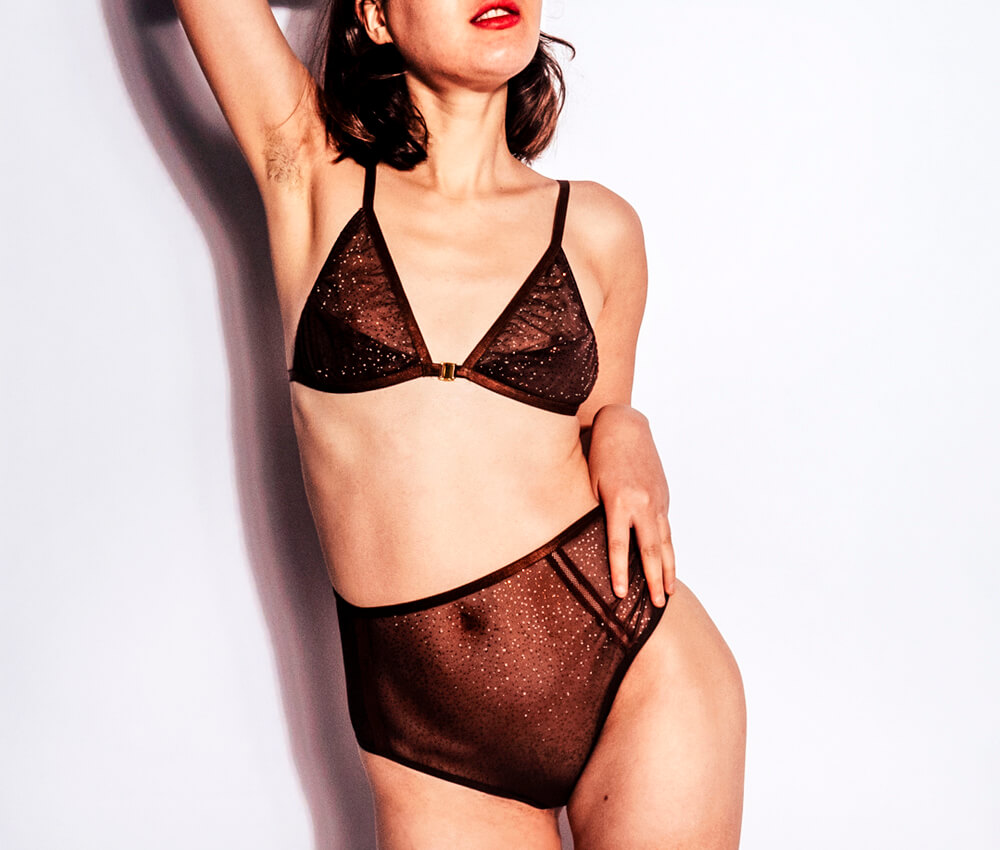Silk Lingerie Laundry Guide
Underwear and nightwear made from silk have no competition when it comes to comfort. The very fine fibers that make up a silk garment (which come from the cocoons of silk worms) are spun before they are woven into a fabric, a process which results in perhaps the smoothest of all materials; silk almost feels as though it glides over the skin, unlike other materials which feel like they sit on or cover it.
- admin
- June 8, 2020
- 8:05 pm
- No Comments
WHY CHOOSE SILK?

Like cotton, silk is a very breathable material, which makes it a top choice for hot summer months or those people who live in a country with a hotter climate. It is also – again like cotton – able to effectively absorb moisture, meaning that wearers will experience fewer rashes, less chafing, and a reduced risk of contracting any infections or suffering from hygiene-related issues. In addition, unlike underwear made from other materials, silk does not bunch up against the skin and retains its smooth feel throughout a day of wear. The only potential drawback is that although it allows a wearer to stay cool in the summer or hotter temperatures, it is not as good as other materials (such as cotton) in providing warmth during the winter season.
Yet the benefits of silk go beyond its appealing look and comfortable feel; wearing the fabric has been found to have a myriad of health benefits. Silk amino acids, a natural nutrient found in the fabric, have been found to reduce specific signs of ageing (such as wrinkles), and since silk is a natural material, it is easier for this fabric to produce and retain moisture on its own, preventing dry or flaky skin; its positive effect on the skin have been observed when wearing it throughout the night.
Because of these benefits, silk is now recognized as a natural anti-ageing product in the form of towels, beddings, and pillowcases. Dermatologists attest to silk’s ability to slow down visible signs of ageing and revitalize the human skin even after a short night’s rest.
Cotton and polyester material can extract and drain moisture from the skin over the course of a night’s sleep, but silk can replenish and maintain this same moisture – moisture which is necessary for keeping a youthful, vibrant skin. Due to the fact that it is a natural material packed with essential amino acids and natural protein, silk helps the nervous system to relax, which then smoothens out any wrinkles and helps to prevent new ones from developing.
Albumen is a naturally-occurring chemical in silk which speeds up the skin’s metabolism and allows dead skin cells to develop and repair at a faster rate. Over time, the long-term use of silk will dramatically improve the skin’s appearance, significantly slowing down any visible effects of ageing; it almost works like moisturizing cream within the clothes that you wear.
Another benefit – although not one that people are necessarily aware of when wearing silk – is that the fabric is very environmentally-friendly. The material is highly renewable, and has far less impact on the environment than other fabrics, principally because of how it is made: the silk worms that produce the fibers predominantly feed on mulberry leaves, which do not require either pesticides or fertilizers to grow.
LOOKING AFTER SILK LINGERIE

Since silk is, well, silky and soft, it can be damaged fairly easily, by both light and heat sources. Silk is an investment, and should be bought with the intention to maintain and keep any garment made of the material for the long-term. This, however, requires care – especially with regards to washing and cleaning silk products.
HAND WASHING SILK LINGERIE
Ideally, any silk clothes should be hand washed in either cool or lukewarm water using a mild detergent, a non-alkaline soap, or a specialist cleaning product especially designed to clean silk garments. Bleach or other ‘pre-wash’ soaking products, however, should never be used, as these can damage or destroy the fabric. In case any dyes in the material run, wash each garment separately and try to keep the temperature relatively constant throughout the wash. After several washes, any excess dye ‘bleed’ in the washing process should stop.
Avoid soaking silk products for more than a few minutes in order to prevent colors from fading; however, these can be somewhat revived when a little white vinegar is used during the first rinse stage.Rinse in cool water and try to avoid wringing the clothing when removing excess water – silk fibres are weaker when wet. More than one rinse may be needed to remove all traces of the detergent.
To dry the garment, lay it flat on a clean dry towel, then gently roll up the towel while pressing to remove excess water. After this, hang the silk garment on a padded hanger; avoid hangers me of untreated wood or metal, since these can mark or stain the fabric. It is also important to avoid direct heat or sunlight when drying silk products, since this can cause the silk fabric to turn an unsightly, yellowish colour.
MACHINE WASHING SILK LINGERIE
As stated, it is always preferable to clean silk clothes by hand, but this is not always possible; the busy demands of a working day leave little time for the intricate task of carefully washing silk. Use of a washing machine, therefore, is often unavoidable.
When forced to use a washing machine to clean silk, always use a ‘delicates’ program and a mild detergent, since silk is easily damaged by high temperatures and strong cleaning chemicals and detergents. Investing in delicates washing bags (which can be bought for as little as $6) is highly recommended; these are small zip-closed mesh bags that can be used to put the garments into before washing. This reduces the abrasive effect that the washing process can have on the silk, and prevents any snagging or ripping during the washing process. The wash temperature should be 30 degrees and the spin cycle should be kept slow and short in duration. Dry the garments in the same way as described above in the previous section; do not use tumble dryers for silk clothes, since this is a sure way to ruin them beyond repair.



